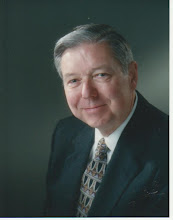Choosing Leisure Activities
WHAT IS IT that determines the wholesome and constructive leisure activities which individuals choose? Why do we want to do certain things in our free time? What causes us to act or behave in certain ways when we are totally free to make our own personal choices? Here are some theories.
Perhaps the most accepted theory, in terms of putting it into practice, is the compensatory theory. Here leisure is viewed as compensation - or as paying us back - for the regimentation or boredom we experience in a job. For example, a worker who stocks shelves in a grocery store might choose to participate in an adult softball league.
For some people, leisure choices might parallel or be very similar to work experiences. This would be called the spillover theory. For example, a teacher who must do a lot of required reading in order to be ready to stand before her students in the classroom might choose to read murder mysteries during weekends.
The familiarity theory explains why some people choose to participate in leisure activities on the basis of what feels comfortable. Here leisure is identified with a sense of good feelings - and perhaps even with a sense of security. For example, a banker might choose to return to the same location year after year for vacation because it just feels like a good spot - and he is already familiar with the locale.
Some folks are significantly influenced by others (such as an extended family, friends, or peers), and make leisure choices based on their thoughts and wishes. This would be called the personal community theory. For example, an unmarried attorney might choose to participate in a "singles retreat" with other unmarried members of his church.
Whatever the reason, all of us need to be involved in some form of leisure activities which re-new our minds, bodies, and spirits. And, we need to make the best possible use of our time - especially our free time.
"Be wise in your behavior, and make the best possible use of your time."
(Colossians 4:5 - The Holy Bible, J. B. Phillips translation)
Perhaps the most accepted theory, in terms of putting it into practice, is the compensatory theory. Here leisure is viewed as compensation - or as paying us back - for the regimentation or boredom we experience in a job. For example, a worker who stocks shelves in a grocery store might choose to participate in an adult softball league.
For some people, leisure choices might parallel or be very similar to work experiences. This would be called the spillover theory. For example, a teacher who must do a lot of required reading in order to be ready to stand before her students in the classroom might choose to read murder mysteries during weekends.
The familiarity theory explains why some people choose to participate in leisure activities on the basis of what feels comfortable. Here leisure is identified with a sense of good feelings - and perhaps even with a sense of security. For example, a banker might choose to return to the same location year after year for vacation because it just feels like a good spot - and he is already familiar with the locale.
Some folks are significantly influenced by others (such as an extended family, friends, or peers), and make leisure choices based on their thoughts and wishes. This would be called the personal community theory. For example, an unmarried attorney might choose to participate in a "singles retreat" with other unmarried members of his church.
Whatever the reason, all of us need to be involved in some form of leisure activities which re-new our minds, bodies, and spirits. And, we need to make the best possible use of our time - especially our free time.
"Be wise in your behavior, and make the best possible use of your time."
(Colossians 4:5 - The Holy Bible, J. B. Phillips translation)


1 Comments:
At 9:21 PM, Anonymous said…
Anonymous said…
wow thank u so much..this was very helpful in completing my assignment for my leisure in society class.
-student
Post a Comment
<< Home